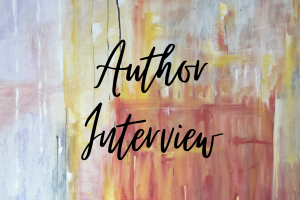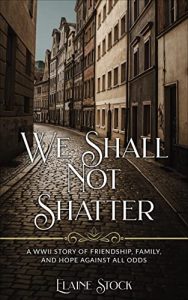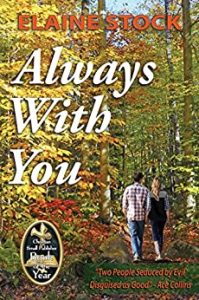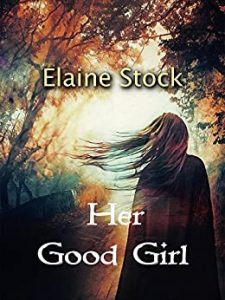Family and Friendship: An Interview with Elaine Stock
 Being a part of the 2021 Debuts allowed me to connect with several authors releasing books in 2022, including Elaine Stock, who is a fellow member of the Women’s Fiction Writers Association. Elaine “enjoys creating stories showing how all faiths, races, and belief systems are interconnected and need each other,” and her latest book, We Shall Not Shatter, which released yesterday, is an authentic story with engaging and sympathetic characters that readers will be drawn to. The reader is reminded of the power of doing good and standing up for what’s right even when it’s difficult (seemingly impossible) to do. Barbara Stark-Nemon wrote that the book is a “poignant and heartfelt tale of perseverance, of friendship across boundaries, of making families in different ways, of horror and of healing . . . This is a story not only of resilience, but of the victory of love and friendship over pain and suffering.” Launching a book takes a lot of time and energy, so I’m thankful that Elaine answered my questions so thoughtfully.
Being a part of the 2021 Debuts allowed me to connect with several authors releasing books in 2022, including Elaine Stock, who is a fellow member of the Women’s Fiction Writers Association. Elaine “enjoys creating stories showing how all faiths, races, and belief systems are interconnected and need each other,” and her latest book, We Shall Not Shatter, which released yesterday, is an authentic story with engaging and sympathetic characters that readers will be drawn to. The reader is reminded of the power of doing good and standing up for what’s right even when it’s difficult (seemingly impossible) to do. Barbara Stark-Nemon wrote that the book is a “poignant and heartfelt tale of perseverance, of friendship across boundaries, of making families in different ways, of horror and of healing . . . This is a story not only of resilience, but of the victory of love and friendship over pain and suffering.” Launching a book takes a lot of time and energy, so I’m thankful that Elaine answered my questions so thoughtfully.
Christina: Congratulations on the release of We Shall Not Shatter, the first in the Resilient Women of WWII trilogy. The book was inspired by your great aunt. Can you give us a little bit of background about this strong woman? Why is she so inspiring?
Elaine: First, and most importantly, heartfelt thanks, Christina, for hosting me on your lovely blog.
Sadly, not much is known about my Great Aunt, Katie Pakula. However, what I managed to learn through the years from was that my father’s father—my grandfather—came to America from Brzeziny Poland on July 4th on the Vaterland ship, right before all transatlantic passenger service was halted because of the outbreak of WWI. He had deaf siblings, though my grandfather was one of the ones that could hear. However, his oldest sister, a teen who was deaf was either sent back to Poland from Ellis Island (the deaf were not permitted into America in 1914 because they were seen as being too socially at risk to America; the younger deaf children were too young to be interrogated), or Katie was left behind in Brzeziny and never sailed to the US . At the time of the German invasion, as a deaf, middle-aged, and Jewish woman, Katie would have been seen as worthless and less-than-human as defined by the Nazis and she perished in the Holocaust—along with her older relatives that remained in Brzeziny.
I want to believe that Katie had a good life, and that despite what the US deemed as becoming a threat to the country, that she was appreciated and respected in Brzeziny. Perhaps, she married. Perhaps she had children and was a beloved wife and mother. Perhaps she stood up for those who were deaf and had other “disabilities” as seen through the eyes of society. And perhaps she pursued a career for herself. That is where my totally fictional character, Aanya, came from—as my attempted tribute to my great aunt.
Christina: The tagline for your website reads, “Exploring Home, Family and Friendship throughout Time.” Why are those themes so compelling? Has historical fiction always been a passion? Is there an era you’d rather not write about?
Elaine: Fascinating questions! Honestly, I enjoy exploring what makes people behave and think and change throughout life. Characters, like ordinary, everyday people, are not stagnant. As I see it, even if one wants to shake loose from the past, one can never escape from home life, family, or the friendship and relationships we’ve developed . . . or yearned about. Life is cumulative, always having cause and effect and impact on shaping us. And we, as individuals, always grow and change. Sometimes for the worse, but hopefully for the better. For me, it’s not the write what you know (I love learning new things!) but write about something that I’m intrigued by and that would be my themes of home, family and friendship and how those passions carry my characters throughout their story situation.
While I’ve always read historical fiction, I was resistant to write it. Somehow intimidated by the research—which I’ve since discovered is more fun than anxiety-producing—I started off writing contemporary fiction, and actually in the romance genre. While I marvel at romance authors, I tossed in the white hat of surrender, recognizing it wasn’t for me, though I still incorporate love-story elements in my novels because what is life without love? Even the most villainous person loves something or someone. I then turned to inspirational fiction and like the romance genre, learned that I didn’t have the right voice for the readers of that genre. With the story of what is now We Shall Not Shatter brewing in me for years—no exaggeration—I made up my mind to give historical fiction a go and am having so much fun that I know there’s no going back for me. As for an era that I won’t write about it would be before the 1700s. It’s funny, as an example, because though I’m presently watching the Vikings series and am hooked by that era, I don’t believe I can do that time period justice. When it comes to writing of some eras, in other words, I rather be the one who is entertained rather than the entertainer.
Christina: Author Patricia Bradley wrote of We Shall Not Shatter, “the story and its characters will linger in the reader’s heart for days . . . perhaps forever.” You’ve talked about the research needed to write this book and its characters. Do you have any tips for those writers just starting out who might get overwhelmed by the thought of such research?
Elaine: As I’ve hinted in the previous reply, it took me a while to shake off the sense of feeling overwhelmed about research. Perhaps it was also the concern about being correct; as it is, I still over-check my research, a lot, for accuracy! My only tip is more of an encouragement: if you want to write about anything, whether historical or contemporary, research a given topic from various sources rather than just one source. Plus, if it’s fiction, as an author you can—perhaps should—give yourself leeway to create a fictional world for your character, but within the realms of what truly occurred. This can be stated in an Author’s Note, addressed to your readers, in your novel.
Christina: As you mentioned above, you’ve also written inspirational novels. Do you see any parallels between those and your historical fiction? Do you approach writing them in the same manner?
Elaine: My personal answer to both questions is yes, I see parallels between writing historical and inspirational fiction and in my approach to writing these two genres. I’m currently writing Book 3 of the Resilient Women of WWII Trilogy, in which We Shall Not Shatter is Book 1. In all three novels, I cannot dispense the impact of faith—or the lack of faith—in characters, as well as the themes of home, family, and friendship that I’ve mentioned in the previous questions. It’s all about what makes people tick.
Christina: I love reading about the lives of authors that we don’t actually see as readers, and you have a list of things that make you smile on your website. That includes cats and movie musicals, which of course leads to inquiring about the musical Cats. Have you seen it? How do you feel about the story and the music?
Elaine: If you’re referring to the 1998 film version of the show, with Elaine Paige, John Mills, and Ken Page, I’ve watched the direct-to-video version on DVD tons of times, as well as seen it on a touring off-Broadway production. I absolutely love that show (and the cast!) and think it really captures the essence of a cat’s “personality.” And yes, I’m owned by a cat. I haven’t seen the 2019 version of it, yet. I’m tempted to borrow it from the library but the reviews have kept me away. I really love Andrew Lloyd Weber’s musical productions and have been a fan of his from back in his professional partnership with Tim Rice—I adore Joseph and the Amazing Technicolor Dreamcoat!! However, I never could fully appreciate The Phantom of the Opera . . . I probably should give that one another go.
Christina: Back to being “owned by a cat.” Are you willing to share a little bit about him? Do you have any other pets or hope to have any other pets?
Elaine: My husband and I are happily controlled by our senior rescue cat that we inherited from neighbors who left him behind when they moved away four years ago. It took him a while to adjust to living indoors and being spoiled rotten, but he hasn’t a complaint about being an only-child. As we’re definitely cat people, we’ve had quite a few cats previously to our present tan-and-white patched furball.
Christina: What does literary success look like to you?
Elaine: The author answer: Knowing that people are reading, enjoying and recommending my novels to many other readers. The hopeful answer: My characters will inspire others to face their tomorrows.
Elaine can be found in multiple places!
Website: https://elainestock.com/
Goodreads: @elainestock
Facebook: @AuthorElaineStock
Twitter: @ElaineStock
Thanks to Elaine for agreeing to this interview! If you know of an author who’d like to be featured in an interview (or you are an author who would like to be featured), feel free to leave a comment or email me via my contact page.




Thank you, Christina, for the lovely interview and for taking the time to host me.
You’re welcome! And thank you. I learn something from every interview–yours included. Congrats!